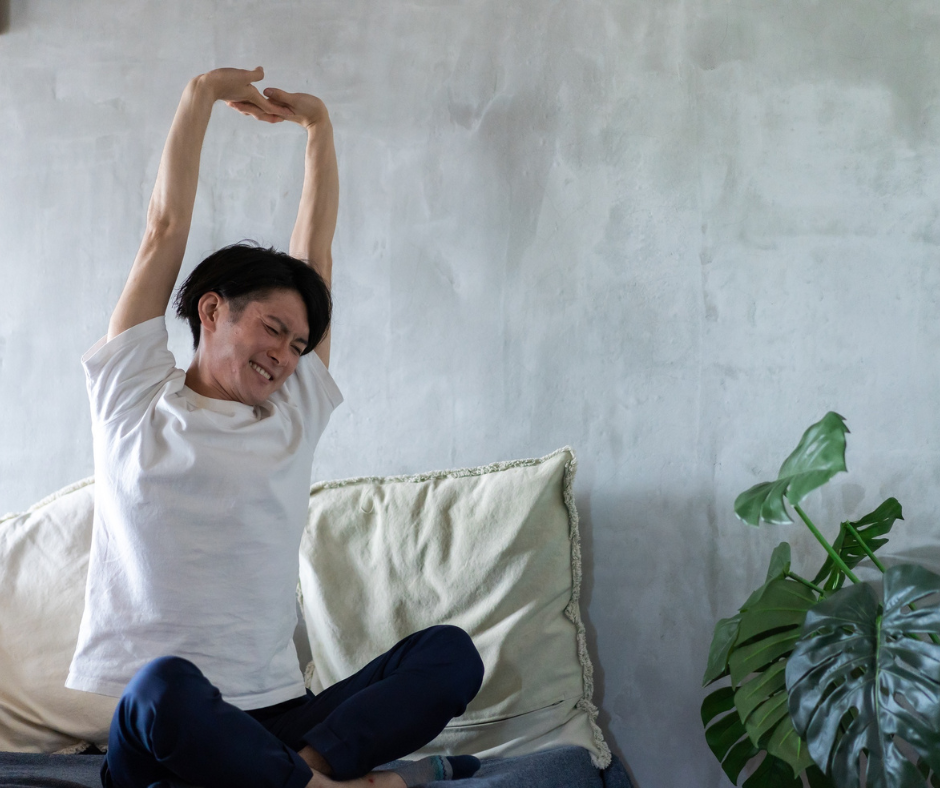Too Sick to Function But Still Working? 15 Therapist-Approved Ways to Care for Your Mind and Body
Have you ever tried to “rest” while sick — only to find yourself half-working from bed, answering emails with a tissue in hand, or thinking about the projects you’re “falling behind” on? You tell yourself you’ll nap after finishing “just one thing,” and before you know it, you’ve powered through half the day, sweating through your hoodie and wondering why you’re not getting better.
If this sounds familiar, you’re not weak or dramatic — you’re likely caught in a loop many hardworking people face: the belief that your worth depends on productivity. When your body forces you to slow down, your mind starts panicking. But illness is your body’s boundary — and ignoring it can turn a simple cold into a full crash.
Let’s explore how to care for yourself — really care for yourself — when you’re sick but still trying to balance work, responsibility, and recovery.

The Body Isn’t Betraying You — It’s Communicating
When you get sick, your body isn’t “failing” you; it’s speaking to you in the only language it knows: fatigue, fever, pain, and shutdown.
This isn’t punishment — it’s protection. Your immune system diverts energy away from thinking, socializing, and multitasking to focus on healing. That’s why you feel foggy, slow, and emotionally tender.
The more you fight it, the longer your recovery drags on. Understanding this biological boundary can help you see rest not as “doing nothing,” but as an active healing process.
The Nervous System’s Sick Mode: Why You Feel So Off
When you’re sick, your nervous system shifts into what’s called a “conservation state.” Your body slows down functions that aren’t essential to survival — like concentration, digestion, and motivation — to conserve energy for your immune response.
This means that what you often interpret as “laziness” or “lack of willpower” is actually a regulated survival mechanism.
You might notice:
- You can’t focus on emails or conversations the same way.
- You crave carbs or comfort food.
- You cry more easily or get irritated for no reason.
These aren’t signs of weakness — they’re physiological indicators that your nervous system is prioritizing repair over performance.
Learning to honor this shift can make you feel less frustrated with your body and more compassionate toward it.

The Emotional Side of Being Sick: When Productivity Guilt Kicks In
Many people feel guilty for resting because somewhere along the way, they learned that self-worth equals productivity.
When illness interrupts your usual output, that internal critic starts whispering, “You’re falling behind.”
This guilt triggers stress hormones, which ironically make your immune system work harder and your recovery slower.
Try reframing rest as:
- A collaboration with your body, not a failure of discipline.
- A form of emotional regulation — each nap, each moment of stillness helps reset your stress response.
- A boundary practice — saying, “I need rest” is a real-world way of asserting your limits.
15 Therapist-Approved Ways to Take Care of Your Mind and Body While Sick (and Still Have a Life)

1. Create a “Bare Minimum” Work Plan
Instead of pretending you can do everything, pick three essential tasks — and let the rest wait.
When you reduce your to-do list to what’s actually necessary, your nervous system relaxes enough to recover.
- Answer only urgent emails, not every notification.
- Communicate your limits: “I’m unwell and focusing on what’s most critical today.”
- Trust that pausing now prevents burnout later.
2. Give Yourself Permission to Be Human
High achievers often treat illness like an inconvenience instead of a signal. But you’re not a robot; you’re an organism.
Healing requires emotional permission — the inner “okay” to rest, even when your mind protests.
- Try saying out loud: “I’m allowed to be sick and rest.”
- Remind yourself: “This doesn’t define my worth or work ethic.”
- Guilt doesn’t speed recovery — compassion does.
3. Design a “Recovery Nest”
Set up a cozy, low-effort healing space that doesn’t require much movement. This helps your brain settle into rest mode.
- Keep water, tissues, and medicine within reach.
- Light a gentle candle or keep the room dim and cool.
- Play soft background sounds (rain, waves, or quiet instrumental music).
This physical setup gives your nervous system sensory cues that it’s safe to slow down.

4. Eat for Recovery, Not Perfection
When you’re sick, your appetite changes — and that’s okay. Focus on simple, nourishing meals that are easy to digest and comforting to eat.
- Warm soups, oatmeal, or scrambled eggs.
- Ginger tea with honey for throat comfort.
- Smoothies or broths if your stomach is uneasy.
Forget “clean eating” — right now, it’s about fueling your immune system, not impressing your diet app.
5. Hydrate in Emotionally Soothing Ways
Hydration isn’t just physical — it’s sensory. The act of sipping something warm can lower cortisol and soothe your vagus nerve.
- Keep a thermos by your bed with lemon water or herbal tea.
- Use a favourite mug or glass to make the ritual feel cozy.
- Treat each sip like a small pause rather than a task.

6. Pause the Pressure Narrative
The voice that says “You should be doing more” isn’t motivational — it’s fear-based. It’s trying to keep you safe from guilt or judgment. But pushing through illness doesn’t make you strong; it makes you depleted.
- Notice that inner critic when it appears and name it: “Ah, my productivity voice is scared again.”
- Replace “should” with “need”: “I need rest to function.”
- Remember, self-worth doesn’t vanish when output does.
7. Schedule a “No-Guilt” Sick Day Ritual
Treat your sick day like sacred maintenance time, not punishment. Give it structure — but gentle structure.
- Have a go-to comfort show that doesn’t require emotional effort (like Bake Off or Bob’s Burgers).
- Wear your comfiest clothes without apology.
- Move between rest, hydration, and gentle self-check-ins.
When you frame it as a “healing day” instead of “lost time,” your body responds better.
8. Say No Without Explanation
When you’re sick, you don’t owe people your full energy.
Over-explaining drains what little energy you have left.
- “I’m under the weather today — can we revisit this next week?”
- “I won’t be able to make it, but thank you for understanding.”
- Short, kind, and clear. That’s it.
You don’t need to prove you’re “really” sick to deserve rest.
9. Protect Your Sleep Like a Therapist Appointment
Sleep is your immune system’s repair mode. Even mild disruptions can extend your illness.
- Turn off screens at least 30 minutes before bed.
- Try gentle stretches or deep breathing before lying down.
- Set your alarm later, even by 15 minutes — micro-rest still counts.
Sleep isn’t a luxury right now — it’s medicine.

10. Move Gently, Not Rigidly
You don’t need to hit the gym, but light movement helps circulation and prevents stiffness.
- Slow neck rolls or shoulder stretches while seated.
- Walking from your bed to the kitchen mindfully, not rushing.
- If you’re feverish, skip this — the goal is to support, not strain.
Your body’s already doing hard work fighting infection; treat it like a partner, not an obstacle.
11. Adjust Your Expectations — Not Just Your Schedule
Being sick shifts what “productivity” looks like. Finishing one email or washing a single dish might be your gold medal for the day — and that’s okay.
- Set micro-goals: “Reply to one message” or “Refill my water bottle.”
- Celebrate completion, not perfection.
- Healing is progress too.
12. Ask for (and Accept) Small Help
Many people struggle more with receiving care than giving it. But allowing others to help strengthens connection and speeds healing.
- Let a friend drop off soup or groceries.
- Order takeout without guilt.
- Allow coworkers to cover tasks temporarily.
Asking for help doesn’t make you a burden — it’s how humans survive.

13. Use Mindfulness to Reconnect With Your Body
Illness can make you feel detached from your body — like it’s betraying you.
Mindfulness brings you back into relationship with it.
- Place a hand over your heart or belly and breathe deeply.
- Whisper a small thank-you to your body for working to protect you.
- Notice how fatigue feels like a soft signal, not an attack.
Compassion quiets frustration and helps recovery happen faster.
14. Notice Emotional Vulnerability as a Symptom
Getting teary, irritable, or anxious while sick doesn’t mean you’re “overreacting.” Your body’s energy is low, and your emotional filter thins.
- Crying may be your nervous system’s way of releasing pressure.
- Allow yourself to feel small and tender — it’s part of healing.
- Avoid deep emotional processing until you’re physically stronger.
Rest first, reflect later.
15. Redefine Rest as Responsibility
Instead of seeing rest as “losing time,” view it as part of your professional and personal responsibility. You can’t pour from a congested cup.
- Your body is the foundation for everything else.
- Resting prevents longer absences later.
- Productivity rooted in self-care is sustainable; exhaustion is not.
Rest is the grown-up version of discipline — not the opposite of it.
Relearning Rest: What “Rest” Actually Means When You’re Sick
Rest isn’t just sleeping or staying in bed. True rest involves lowering stimulation across physical, emotional, and cognitive channels.
If you’re sick and still scrolling, checking emails, or listening to intense news, your nervous system stays in overdrive.
Different kinds of rest include:
- Sensory rest: Dim the lights, silence notifications, avoid screens.
- Emotional rest: Stop explaining or apologizing for being sick.
- Social rest: Reduce social obligations that drain you.
- Creative rest: Let your mind wander without forcing inspiration.
Even ten minutes of intentional sensory rest can calm your body enough to help it heal faster.
When You Feel Helpless or “Behind”
It’s easy to spiral when you’re sick and start thinking about what you “should” be doing.
That’s your executive brain trying to stay in control while your body brain begs for pause.
Instead of fighting that internal tug-of-war, experiment with the middle ground — care that’s both restorative and achievable.
Try this:
- Write a short “bare minimum” list for the day: one work task, one meal, one act of rest.
- Keep it visible to remind yourself that progress can look gentle, not grand.
- Give yourself permission to celebrate small wins: “I took my meds and replied to one email — that’s enough.”

The Mind-Body Reconnection Ritual
When you’ve been sick for a while, it’s common to feel detached — like your body is this slow, unpredictable thing you can’t trust.
That disconnection can heighten anxiety or even prolong recovery.
You can start to rebuild trust with simple grounding moments that remind you you’re on the same team.
Examples:
- Place your hand on your chest and breathe slowly, saying quietly, “We’re healing.”
- Drink water slowly, noticing the sensation of warmth or coolness down your throat.
- Thank your body for something small — “Thank you for still breathing through this cough.”
Each act signals safety to your nervous system and helps your recovery integrate both body and mind.

When You Finally Let Yourself Slow Down...
Something powerful happens when you stop fighting your body. Your nervous system exhales. Your inner critic softens. You remember that health is the baseline — not the bonus. You begin to realize that rest isn’t a reward you earn after exhaustion, but a rhythm your body has been asking for all along.
When you let yourself truly slow down, clarity starts to surface — the kind you can’t access in constant motion. You might notice what actually matters, who drains your energy, or how often you’ve been pushing through pain. The stillness that once felt uncomfortable begins to feel like safety. Healing isn’t just about feeling better; it’s about finally listening to what your body has been whispering for months.
At KMA Therapy, we know that slowing down is often the hardest thing for people who care deeply and work hard. Many of our clients come in believing they have to “earn” their rest, only to discover that permission to pause is one of the most transformative parts of therapy. Together, we can help you unlearn the guilt that keeps you overextending and replace it with compassion, balance, and rest that actually restores.
💬 Book your free 15-minute discovery call today and connect with one of our therapists. Let’s help you rest without guilt, recover without pressure, and return to life feeling recharged — not run down.






